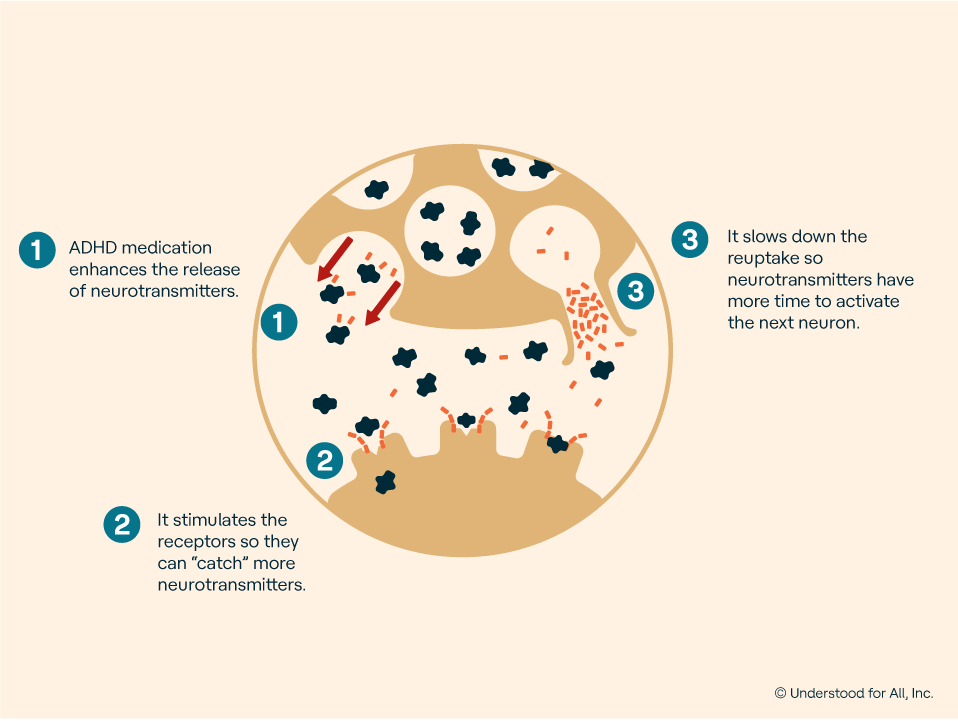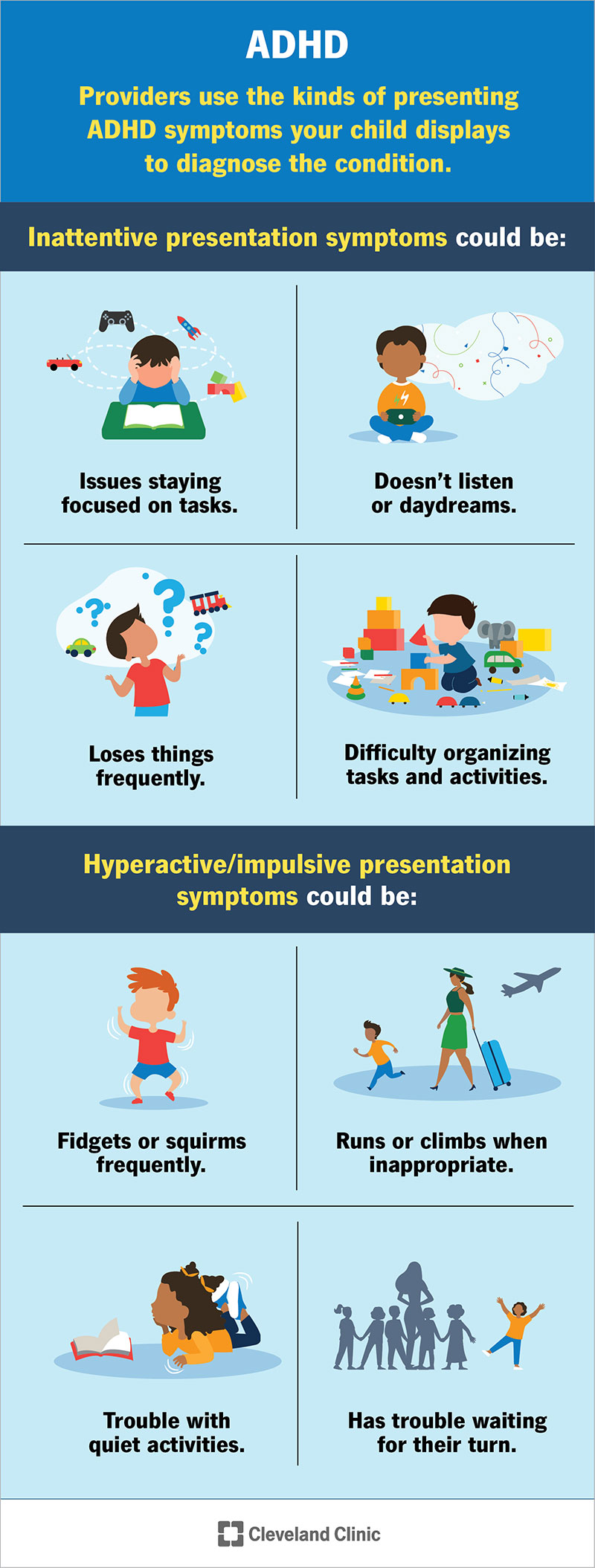The Advantages of Individualized ADHD Treatment Prepare For Better Outcomes
The implementation of individualized ADHD therapy strategies has actually emerged as an essential approach in improving therapeutic outcomes for people affected by this condition (ADHD treatment). By identifying the unique symptoms of ADHD in each person, these personalized treatments promote higher interaction and inspiration, ultimately leading to extra efficient coping techniques.
Recognizing ADHD Irregularity
Although Attention-Deficit/Hyperactivity Disorder (ADHD) is commonly regarded as a singular problem, its manifestations can vary substantially among people. This irregularity is influenced by a variety of variables, consisting of age, sex, existing together conditions, and ecological contexts. For example, children with ADHD might exhibit hyperactive behaviors, while adults might predominantly have a hard time with interest shortages. Gender differences additionally play a function, as men are extra regularly detected with ADHD and commonly present more obvious signs, whereas women might present with less evident inattentiveness.
Furthermore, people with ADHD might experience a range of emotional and behavior obstacles, such as stress and anxiety or opposite defiance, that can complicate medical diagnosis and therapy. The communication of these elements can bring about diverse experiences of ADHD, requiring a nuanced understanding of the disorder. It is additionally worth keeping in mind that ADHD can present differently throughout various social contexts, affecting exactly how signs are identified and dealt with. This understanding emphasizes the relevance of acknowledging ADHD as a complex problem, which requires personalized approaches to therapy that take into consideration the one-of-a-kind needs and experiences of each person.
Key Elements of Personalization
Individualized ADHD treatment plans are based in several vital components that make sure reliable management of the problem. First, a detailed analysis is important, including standard score scales, interviews, and behavior monitorings. This extensive examination enables medical professionals to comprehend the person's special symptoms, staminas, and obstacles.
Second, the participation of numerous stakeholders, including parents, instructors, and the person, contributes to a holistic view of the individual's demands. Collaboration promotes a supportive setting that can adapt to the individual's context and way of life.
Third, treatment strategies should be flexible and versatile, enabling for adjustments based upon continuous responses and the individual's evolving demands. This flexibility makes it possible for the integration of various restorative techniques, such as behavior treatments, psychoeducation, and medication management.
In addition, social and contextual aspects need to be taken into consideration. Identifying the person's history, worths, and choices makes certain that the therapy is relevant and respectful.
Lastly, regular follow-ups and evaluations are important to keep an eye on progress and make essential changes. By focusing on these key elements, personalized ADHD treatment plans can dramatically improve the effectiveness of treatments, bring about enhanced results for individuals with ADHD.
Improved Engagement and Motivation
To efficiently advertise boosted involvement and motivation in individuals with ADHD, it is vital to integrate methods that resonate with their rate of interests and toughness. Personalized treatment plans that align with an individual's passions can cause raised engagement in healing tasks, promoting a sense of ownership and excitement for the procedure.
Making use of interactive and innovative methods can likewise considerably improve inspiration. For example, integrating gamification aspects or real-world applications of abilities can make jobs a lot more appealing and pertinent. This not only captures focus but also strengthens learning through delightful experiences.
Moreover, setting attainable and significant objectives tailored to the person can boost inspiration. When individuals see their progress towards directly significant goals, they are most likely to remain involved. Routine feedback and acknowledgment of accomplishments can further sustain inspiration, creating a favorable comments loop that motivates continued effort.
Lastly, cultivating an encouraging environment where people feel recognized and valued can substantially impact their engagement levels. When treatment strategies are established collaboratively, incorporating input from the individual, they are most likely to really feel purchased their trip, eventually leading to boosted results in managing ADHD.
Improved Coping Methods
Establishing enhanced dealing techniques is essential for people with ADHD, as it equips them with efficient tools to browse day-to-day difficulties. An individualized therapy strategy enables the identification of certain coping systems customized to the individual's special requirements and scenarios - ADHD treatment. Strategies such as mindfulness, time administration abilities, and business strategies can be integrated right into everyday regimens, fostering a sense of control and lowering anxiety
Mindfulness techniques, including reflection and deep-breathing workouts, aid individuals with ADHD concentrate their attention and control their feelings. Time monitoring methods, such as using timers or damaging jobs right into smaller, manageable steps, can minimize feelings of overwhelm. Furthermore, organizational tools he said like coordinators and lists can recommended you read boost efficiency and responsibility.
Long-term Favorable Results
Implementing customized ADHD therapy plans can bring about significant long-lasting favorable end results for individuals. These tailored techniques, which consider one-of-a-kind signs and symptoms, preferences, and life circumstances, assist in a lot more efficient administration of ADHD signs gradually. By concentrating on the certain needs of the person, these plans enhance adherence to treatment protocols and foster higher involvement in restorative activities.

Furthermore, individualized therapy strategies can considerably minimize the threat of comorbid conditions, such as stress and anxiety and clinical depression, which are commonly related to ADHD. Early treatment and consistent support help individuals build strength and coping methods, advertising overall psychological health.
Ultimately, the long-lasting favorable outcomes of customized ADHD therapy plans not only improve the quality of life for people however likewise contribute to their general well-being and success in different life domains. This all natural approach highlights the relevance of customized care in handling ADHD effectively.
Conclusion
